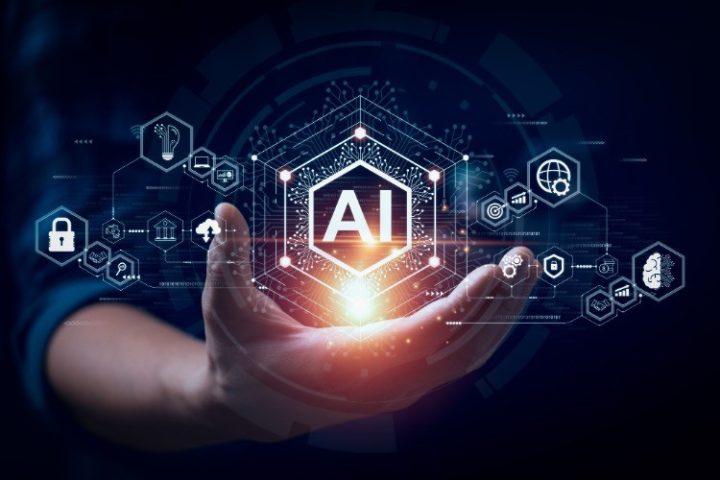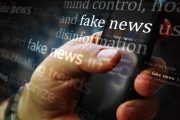
While artificial intelligence (AI) at its current and expected future capabilities opens up a world of possibilities for humanity, it also presents a new set of problems that will have to be addressed.
Among them is the question, What will there be for us to do when AI does all the jobs?
Of course it’s not likely that artificial intelligence will ever completely supplant human beings in the entire workforce. But the technology already has advanced to the point that a number of forms of work, particularly creative work, that were previously thought to be something only humans can do, has now become the domain of AI.
It is not unreasonable, then, to suppose that AI’s capabilities will continue to expand to encompass more and more spheres of human activity.
The trend in AI’s exponential and skyrocketing development can be seen in the creative sphere. Many who anticipated a future in which artificial intelligence plays an active role believed that humans would still maintain superiority in the realm of creative or artistic endeavors such as music, literature, the plastic arts, and design.
Now, that assumption is quickly losing ground.
Kristin Tate, an analyst for Young Americans for Liberty, wrote in a recent piece at The Hill that AI will likely spell doom for “laptop class” workers.
“Artificial intelligence is advancing at a breakneck speed. Recent announcements of programs that can mimic human conversation, copy our voice, write research papers, and paint beautiful pictures are just a small sliver of the coming AI revolution,” Tate writes.
She continues:
Scores of jobs that require a college education will be changed nearly overnight. Rapid advances in this new technology will wreak havoc on the very people who prospered during COVID, especially those who work in the “knowledge economy” and can often carry out their duties from their laptops at home. Artificial intelligence advances within the next one to five years will outpace most work a human can input into a keyboard. Most content on the web will be written by chatbots. There will be AI influencers. Code will be written in a tiny fraction of the time it takes for humans to produce it. Graphic artists will lose most of their business to art generators. Even accountants and financial analysts may be outpaced by computers. ChatGPT already helps coders through basic code, which often needs refining. The chat service also can help replace many of the smarts needed to build a website. It already has passed an MBA exam and law exams.
Just think of how artificial intelligence will likely transform media, which plays such a pivotal role in modern life, not only for entertainment purposes, but for information and public knowledge.
In journalism, for example, it’s probable that members of the press who do original reporting will still have work. However, a large swath of journalistic work is done, not on the field, but at the office — fact-checking, revising, and aggregation of reporting from other outlets. All of these jobs could foreseeably be taken over by AI eventually.
Even news analysis could give way to bots with the ability to rapidly analyze and break down current events.
It will also be fascinating to see what changes AI brings to education. Already, technology has revolutionized learning; online tools allow for affordable, high quality, and remote learning programs (such as FreedomProject Academy) that challenge the monopoly public schooling has long held on education.
While artificial intelligence may never completely replace teachers in every circumstance, it may supplant the human element in many aspects of education — from curriculum development to grading to reviewing the needs of students. This could be even more true in higher education, where student autonomy is already more of a given than it is in K-12.
In her article, Tate assures readers that while white-collar jobs are in danger of being eliminated by AI, blue-collar work will persist safely in human hands.
“Replacing sheetrock can be done only by doing. AI cannot build a house, fix a plumbing issue, give you a haircut, or install lights in a public space,” Tate writes.
But can we be so sure? As already noted, AI is already gaining a foothold in creative work that we didn’t expect. Who’s to say it won’t similarly encroach in blue-collar work eventually?
After all, there are already 3D-printed houses being built by robots. And there are robot welders working in a variety of industrial settings.
With all this in mind, is Luddism the answer? Or should a more measured approach be taken?
While precautions are warranted to ensure AI — which can doubtless be corrupted and hacked — doesn’t completely replace important societal decision-making or erode our constitutional rights and freedoms, it will nevertheless create new opportunities even where it seems to close some.
Media outlets, for example, will perhaps have the resources to do more original news coverage once they are able to relegate in-office tasks to AI. Schools will be able to give their educators more personal time with individual students when non-classroom tasks are replaced by artificial intelligence.
Moreover, the growth of productive capital in the form of AI should encourage more and more people to invest so that they can live off the capital earnings generated by these new technologies rather than having to worry about subsisting off wages from a job.
In this way, although AI can, like all technology, be abused to curtail our freedoms, it can also be an instrument for creating a greater degree of economic freedom.




